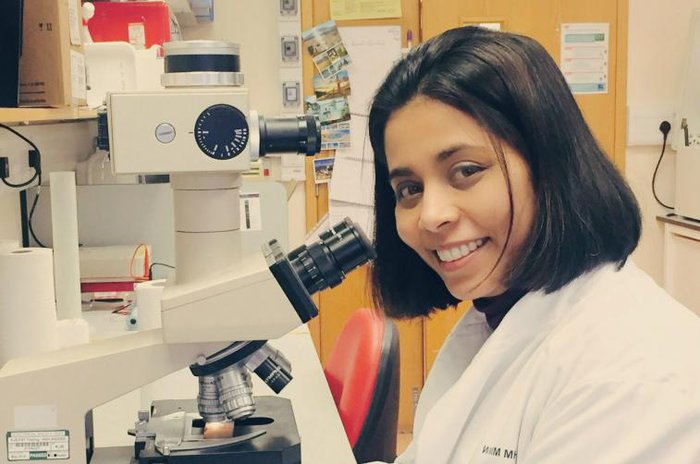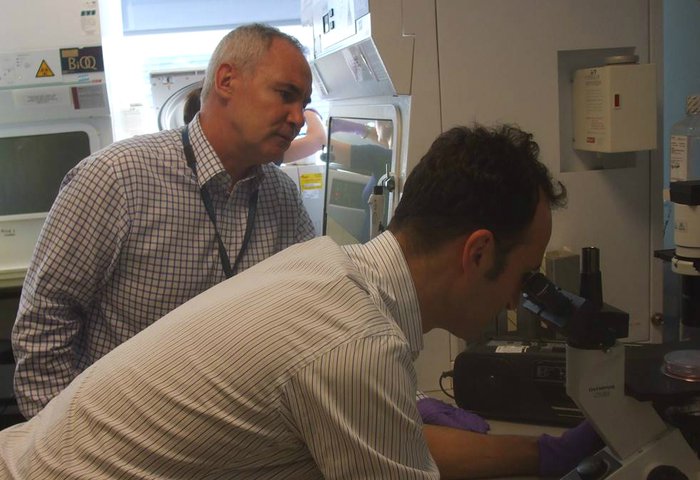How to cope with stress: tips from Bloodwise researchers
For Mental Health Awareness Week, two Bloodwise-funded researchers share things they do to try to maintain mental wellbeing in a stressful environment.

Dr Anindita Roy, Bloodwise Clinician Scientist in Paediatric Haematology at University of Oxford
What are you working on, and how does it help people with blood cancer?
I am working on understanding how babies less than one year of age get blood cancer, and trying to find kinder and more effective treatments for this age group.
What’s the most stressful part of your job?
I love my job, but what I find stressful is managing to balance time for research and home life especially as I have a long commute.
How do you deal with the stress of your job?
I try my best to be organised and disciplined with my time and prioritising tasks really helps. Spending time with family and friends during my free time helps me relax. I also enjoy travelling and reading.
What changes would you like to see in society to make our lives less stressful?
I would like to see people interacting with each other at a personal level: finding time to meet up with neighbours, friends, or colleagues in a social setting is a great way to unwind. More opportunities for flexible working would also make work life less stressful for most people.
What advice would you give to someone who is struggling with stress?
My advice would be to speak to someone within your circle of family/friends or colleagues. Speaking about it is the first step towards dealing with stress.

Brian Huntly (left) pictured in the lab with Senior Clinical Fellow Paolo Gallipoli
Professor Brian Huntly, Professor of Leukaemia Stem Cell Biology at Cambridge Institute for Medical Research
What are you working on, and how does it help people with blood cancer?
My lab focuses on the alterations that turn normal blood forming cells (stem cells) into the blood cancers leukaemia and lymphoma. By knowing more about these alterations we will be better able to target and treat blood cancers when they form. In addition, this knowledge will hopefully allow us to prevent blood cancers forming, or, at the very least, to intervene earlier in the course of the disease.
What’s the most stressful part of your job?
Trying to be both an active doctor and successful scientist – both are full time jobs!
How do you deal with the stress of your job?
I have a great family and interests outside of work that de-stress me. If I ever feel sorry for myself, I also try to think of the patients and what they and their families are going through which puts things into perspective.
What changes would you like to see in society to make our lives less stressful?
Simple things like people being considerate and treating other people the way that they would themselves like to be treated.
What advice would you give to someone who is struggling with stress?
Find a friend or family member to share problems with and they will help to put things into a better perspective.
